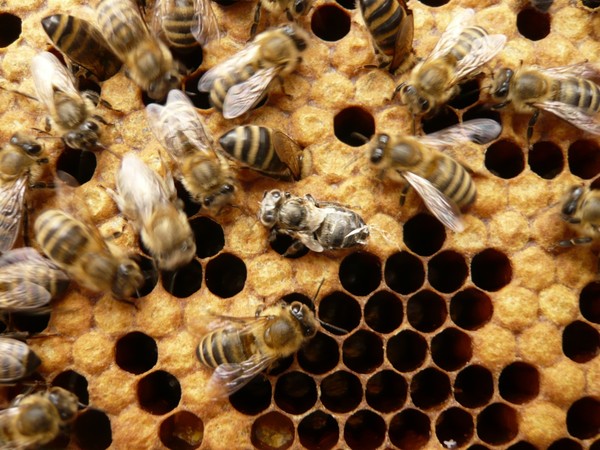In recent years, beekeepers have been increasingly confronted with extensive losses of honeybee colonies, which occur repeatedly in the Czech Republic, every two to three years on average. These results come from the surveys of experts from the Department of Biochemistry at the Faculty of Science. This year, researchers will try to identify the causes of this unfavourable trend and quantify overall losses through the seventh extensive data collection from beekeepers.
Using six surveys to date, involving approximately 1,200 respondents in recent years, experts from the Faculty of Science found out that the last major deaths were recorded by domestic beekeepers between the years 2014 and 2018. For example, in 2015 one fifth of honeybee colonies did not survive the winter, mainly due to the decimating varroosis disease. “According to field reports, significant colony losses can be expected from the past year. It is therefore necessary to map in which periods the losses reoccur. Previously they reoccurred every five to seven years, currently the period of recurrence is already significantly shorter: two to three years,” said Jiří Danihlík from the Department of Biochemistry, a beekeeper himself.
This year, domestic beekeepers will again receive a questionnaire with questions on honeybee colonies hibernation, losses, and beekeepers’ activities in the past season, etc. “We are trying to monitor all the various important factors that could affect the colonies’ hibernation. We want to learn not only about the current situation, but also create a data archive so that we can return to the obtained data in 5, 10 or 15 years and see how it has been in the past,” said Danihlík.
Thanks to the data, researchers could investigate the causes of the colonies’ mass mortality, which, according to Danihlík, may be due not only to honeybee diseases, but also to climate change or the nature of the landscape around honeybee hives. “We also want to find out whether these mass mortalities occur in the lowlands, mountains, or areas with intensive agriculture, and what is the concentration of honeybees in the affected areas, because all of this has an impact on their health,” he said. Thanks to the survey, researchers should also get answers to the questions whether there are areas in the Czech Republic where there is no significant mass mortality in honeybee colonies.
Experts from the Faculty of Science have also launched interactive maps of the Czech Republic with data on honeybee colony losses in individual regions, the concentration of honeybees and important resources for egg-laying. “The maps offer a unique insight into the results of the questionnaires and, above all, allow us to understand the otherwise hidden spatial context,” said Jan Brus from the Department of Geoinformatics.
There are about 779,000 honeybee colonies and nearly 63,000 beekeepers in the Czech Republic. The results of the survey for the Czech Republic, organised by experts from the Faculty of Science, are annually sent to the international association COLOSS, which monitors the success rate of honeybee colony hibernation in Europe. According to Danihlík, beekeepers in neighbouring countries have also reported extensive honeybee deaths in recent years. “Everyone is debating the possible causes and one that has been in the public spotlight is varroosis, which has likely swept through Central Europe,” he added.
The project “COLOSS: Monitoring of honeybee colony losses” is an international project under the auspices of the Swiss-based COLOSS association. The Czech Republic has been involved in the project since 2014, when the first year of monitoring took place. The questionnaire and map applications are available at www.coloss.cz.
